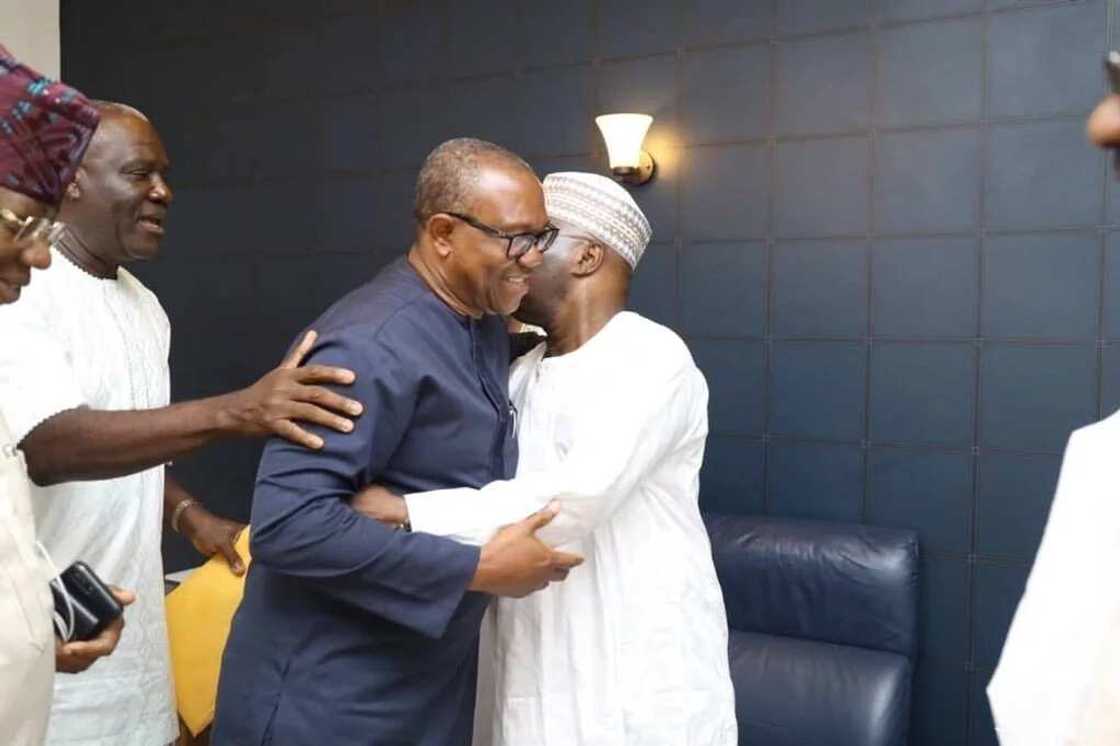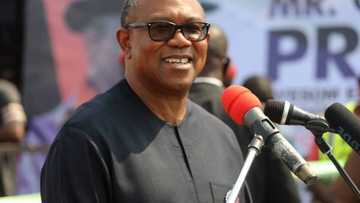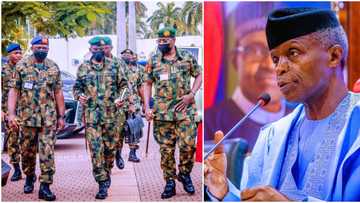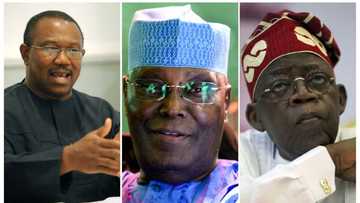How Atiku, Obi Plan To Fix Power Problem, New Revelation Emerges
- Peter Obi of the Labour Party and Atiku Abubakar of the Peoples Democratic Party have vowed to solve power problem in Nigeria
- Obi said he would achieve 15,000 megawatts (MW) of electricity in four years – an ambition no administration has attempted
- On the other hand, Atiku said he would launch a $20 billion consortium of private sector institutions to help in solving the problem
Two of the main contenders in Nigeria’s next presidential election, Peter Obi of the Labour Party and Atiku Abubakar of the Peoples Democratic Party, have laid bare their plans on how to solve the country’s electricity problem.
The country’s beleaguered power sector is seen to be moving at a snail’s pace, with the national grid collapsing last month for the sixth time this year, despite over N1.6 trillion interventions by President Muhammadu Buhari’s administration.

Source: Twitter
Obi said he would achieve 15,000 megawatts (MW) of electricity in four years – an ambition no administration has attempted.
The Labour Party candidate, who travelled to Egypt in June, said he studied the dynamics of the country’s power generation and met with the companies involved.
PAY ATTENTION: Follow us on Instagram - get the most important news directly in your favourite app!
Egypt, with a population of 103 million, generates over 50,000MW of electricity.
“I visited the power plants in Egypt to see what they were able to do within those five years. I visited the companies that executed the projects. Held a very useful meeting with the CEO of the company, visited the power holding company of Egypt and other agencies involved to learn what they did,” Obi said on Channels TV.
“I also visited the financiers of the project, what they were able to do can easily happen here. And my commitment is that Nigeria will be able to generate, transmit and distribute 15,000MW within a four-year period of a government,” Obi added.
For PDP’s Atiku, the first step in solving the country’s perennial power problems will be to launch a $20 billion consortium of private sector institutions to establish an Infrastructure Debt Fund to primarily mobilise domestic and international private resources for the financing and delivery of large infrastructure projects.
He added that due to the priority that he places on the power sector, upon which the successes of other sectors are hinged, “I am proposing innovative financing of infrastructure that will involve the facilitation of a review of the financial, legal, and regulatory environment to promote private investment in power, among other sectors.”
“I’ll promote the incentivisation, with tax breaks, a consortium of private sector institutions to establish an Infrastructure Debt Fund (IDF) to primarily mobilise domestic and international private resources for the financing and delivery of large infrastructure projects across all the sectors of the economy,” Atiku said on Twitter.
Most of the experts who spoke with BusinessDay said most politicians need to look beyond scoring political points by having a firm understanding of the challenges facing Nigeria’s power sector. This, they said, would prepare them sufficiently for the task ahead.
“Obi and other leading candidates have not properly addressed the issues or can claim to have a firm understanding of how best to get around it,” Chinedu Onyegbula, an energy sector expert and director at Bullox Resources Limited, said.
Collins Obi, an energy specialist with a Lagos-based multinational, said the energy challenges facing Nigeria are complex and multi-dimensional and cannot be solved in a fragmented or piecemeal way but in a holistic and system-level manner.
“Just like the Egypt’s model, Nigeria needs a community-based, decentralised, market-driven and people-centric manner to power services for the country to come out of the woods,” he said.
Ndubuisi Ekekwe, a Nigerian professor and the founder of First Atlantic Semiconductors & Microelectronics, commended Atiku for coming up with a solution to fix Nigeria’s power problems, although he said, “The proposal is not novel.”
“That is what has happened in most parts of Africa: credit guarantees work but are also limited once the guarantor cannot expand them,” Ekekwe said in a note.
He said politicians need to address the reasons why people see opportunities in the energy sector and yet refuse to invest. “Interestingly, we know the #1 reason: a court now determines how much producers of power can charge their customers, irrespective if that will bankrupt the sector,” he said.
2023: 3 Reasons Why Peter Obi Has an Edge Over Tinubu, Atiku, Kwankwaso
Going by the analysis of the potential of the presidential candidates ahead of the 2023 elections, Peter Obi, the Labour Party flagbearer, has been tipped to have an edge above other aspirants.
Peter Obi's campaign has been adjudged to be issue-based in nature, he talks to the youths, and his geed antecedents are some of the paths his opponents are yet to take.
However, these chances of Obi have been undermined by the political warlords in the northern party of the country, including Rabiu Kwankwaso of the NNPP, who have predicted that he will not win the north, the political bloc in the country.
Source: Legit.ng






